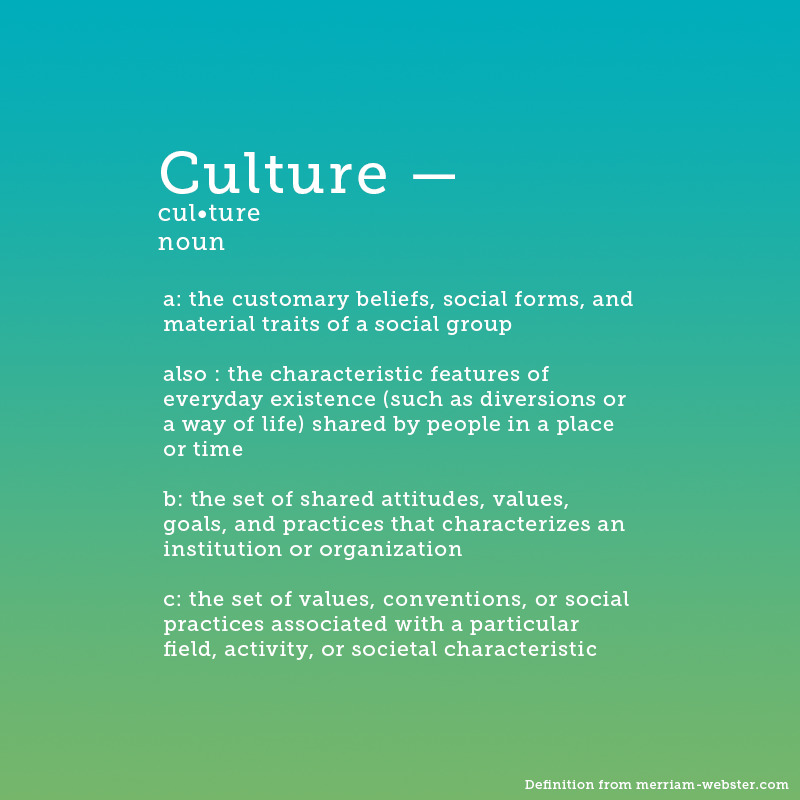During the selection process, your association’s board of directors will ask a lot of questions about a new association management company (AMC). The questions will probably focus heavily on costs, staffing levels, past successes, and how the AMC has performed with similar associations.
Knowing how your AMC develops its cost structure and understanding how they’ve guided associations through the same obstacles to success is important—but many boards often fail to ask about an AMC’s culture.
That’s a mistake.
Here are three reasons your board of directors needs to better understand an AMC’s culture before signing a management contract.
-
Culture drives innovation.
An AMC will likely manage a client the same way it manages itself.
For example, if an AMC hasn’t embraced technological innovation for itself, the odds it will embrace technology for a client are lower. If your AMC doesn’t believe that fresh ideas can come from anywhere within the management company, the odds that it will encourage innovative thinking within the association are also lower.
How can a board better determine if an AMC prioritizes innovation?
Simple.
Ask.
Ask the management company owner and other senior leaders involved in the selection process for examples of innovative strategies and processes they have implemented within the actual AMC.
Of course, there is a caveat: an AMC can only drive innovation within an association so far.
Boards must encourage innovation if they want their AMC to be innovative.
-
Culture drives successful relationships with boards.
A successful association/AMC relationship depends on integrity and collaboration. Like innovation, an AMC that practices honest, transparent communication among its own employees and management will do the same on behalf of a client.
Of course, asking an AMC if they value integrity, transparency, and collaboration is pointless.
There is another, more indirect way to better understand if a culture is honest and transparent.
Most employees value qualities like honesty, transparency, and collaboration in an employer. The absence of those values creates a miserable environment that employees are likely to leave as soon as possible. Ask a management company how long the average tenure of their employees is. The association world has a certain level of inherent turnover, but boards can recognize a revolving door when they see it.
Associations will not usually have the same association executive for a decade—but it shouldn’t be getting a new one every six months.
-
Culture and customer satisfaction go hand-in-hand.
An AMC that exhibits poor customer service when interacting with a board of directors is likelier to exhibit poor customer service on behalf of a board of directors. Unanswered emails, late responses, and other negative traits can result from a poor employee fit at an AMC—but it is a cultural problem when those negative traits aren’t recognized and corrected.
Excellent customer service doesn’t come from an employee handbook or a company manual.
It is the inevitable outcome of individual behaviors and a company’s reaction to those behaviors. A culture of strong customer service will inherently develop when positivity, gratitude, and kindness are recognized and rewarded. However, when negative behaviors like apathy and indifference are tolerated, then any hope for good customer service—much less exceptional customer service—is lost.
Pay attention to how the AMC interacts with you. It will interact the same way with your members.
Finally, every AMC—regardless of size, experience, or track record of successes—must value openness, inclusion, and diversity. Organizations that don’t adopt this mindset will find they are losing out on opportunities to make an impact compared to those that do. It is 2021. Any hint that an AMC has created an environment where anyone feels unsafe or unwelcome is inexcusable.
If your AMC isn’t focusing on fostering diversity and inclusion now, they’re behind.
Want to read more about selecting your next association management company?
Read these selections from the SBI Blog:
- Three Signs You Need to Rethink Your AMC.
- Three Things Boards Need to do to Ensure a Smooth Transition Between AMCs.
- Five Questions to ask before you Hire an Association Management Company.
- Finding the Right Partner for Your Association Means More than Firing Your Existing AMC.




